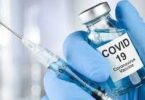Pelvic inflammatory disease is an infection of a woman’s reproductive organs.
Pelvic inflammatory disease is usually caused by some sexually transmitted diseases, such as chlamydia infection and gonorrhea. Other infections that are not sexually transmitted can also cause pelvic inflammatory disease. Having unprotected sex with someone who has an STI can cause pelvic inflammatory disease. The time to cure pelvic inflammatory disease takes approximately 2 weeks by taking antibiotics.
Pelvic inflammatory disease is detected through a blood and urine test. These tests may be used to detect pregnancy, human immunodeficiency virus, or other sexually transmitted infections, or to measure white blood cell counts or other markers of infection or inflammation.
Inflammation of the ovaries may be related to pelvic infections or endometriosis. Pelvic infection is an infection of the female reproductive organs. It usually occurs when sexually transmitted bacteria spread from the vagina to the uterus, fallopian tubes, or ovaries. When bacteria move from your vagina and cervix to other parts of your body. It can cause chronic pain and other serious health problems, such as infertility.
Untreated pelvic inflammatory disease can cause pockets of infected fluid (abscesses) and scar tissue to form in the reproductive system. These can cause permanent damage to the reproductive organs. Complications of this damage may include: Ectopic pregnancy.
Some women do not have any signs or symptoms:
The most common signs and symptoms of pelvic inflammatory disease include:
- Mild to severe pain in the lower abdomen and pelvis.
- Bleeding from the cervix. It is the opening to the uterus.
- Discharge coming out of the cervix.
- Pain when touching the cervix.
- Tenderness in the uterus, fallopian tubes, or ovaries.
TREATMENTS:
The medications most used to treat different infections that can affect the reproductive tract are:
Administer 500 mg daily as a single daily infusion for 1 or 2 consecutive days.
Administer 250 mg daily as a single daily dose orally for at least 5 consecutive days.
Remedies for inflammation in the uterus, such as ginger tea, echinacea tea and pomegranate tea, have substances with anti-inflammatory, antimicrobial and immunomodulatory action, which help combat inflammation in the uterus and strengthen the immune system.
RECOMMENDATIONS:
- Drink lots of water.
- If you feel pain, you can take aspirin, ibuprofen (Advil), acetaminophen (Tylenol), or naproxen (Aleve).
- Use a heating pad.
- eat a diet rich in vegetables and fruits, drink orange, grape and apple juice.
- Baths with cold water in the ovarian area.
- Do not douche.
- Do not use tampons.
- Remedies for inflammation in the uterus, such as ginger tea, echinacea tea and pomegranate tea, have substances with anti-inflammatory, antimicrobial and immunomodulatory action, which help combat inflammation in the uterus and strengthen the immune system. .
- Nonsteroidal anti-inflammatory drugs (NSAIDs) reduce fever and inflammation and relieve pain.
- avoid cold and humidity in the pelvic area,
- perform cold water baths in the ovarian area.
FONT
https://www.cdc.gov/std/spanish/eip/stdfact-pid-s.htm
https://medlineplus.gov/spanish/ency/article/000888.htm
https://espanol.womenshealth.gov/a-z-topics/pelvic-inflammatory-disease







